Are you aware that your online activities can be easily intercepted by hackers when using public Wi-Fi? This is a concerning reality for many internet users today.
A Virtual Private Network (VPN) adds an extra layer of protection to your daily browsing by encrypting your internet traffic. This makes it virtually impossible for hackers to unencrypt your data, ensuring a safer connection.
As we increasingly rely on the internet for both personal and professional activities, online privacy and security have become paramount. A VPN helps shield your online activity from prying eyes, making it an essential tool in today’s digital landscape.
By understanding how a VPN works and its benefits, you can take a significant step towards protecting your data and maintaining your privacy.
The Basics of VPN Technology
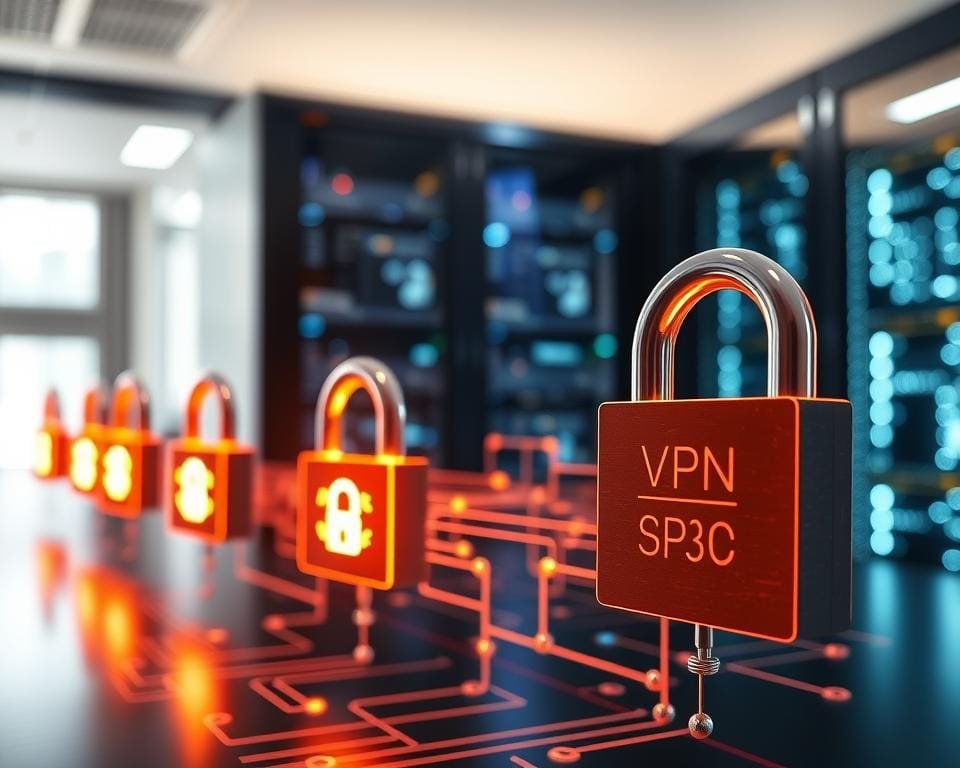
The concept of VPN technology revolves around creating a secure and private connection over the internet. At its core, a VPN is designed to provide a safe and encrypted pathway for your online data to travel through.
What is a Virtual Private Network?
A Virtual Private Network, or VPN, is a service that allows you to connect to the internet via a server, masking your IP address and encrypting your data. This not only enhances your online security but also protects your privacy by hiding your online activities from your ISP and other potential snoopers.
By using a VPN, you can browse the web more securely, especially on public Wi-Fi networks, which are often targeted by hackers. VPNs have become an essential tool for both individuals and businesses looking to safeguard their online presence.
- Masking IP addresses to protect user identity
- Encrypting internet traffic to secure data
- Enhancing security on public Wi-Fi networks
How VPN Encryption Protects Your Data
VPNs use advanced encryption protocols to protect your online data. NordVPN, for instance, utilizes the AES-256 encryption protocol, which is considered industry-standard for secure internet traffic. This level of encryption scrambles your data, making it virtually unreadable to unauthorized parties.
The process involves generating encryption keys that only authorized parties can use to decrypt the information. This ensures that even if your data is intercepted, it cannot be accessed without the decryption key.
By employing strong encryption, VPNs prevent various entities, including ISPs, hackers, and government agencies, from monitoring your online activities. This is crucial for maintaining your online privacy and security.
Why You Need a VPN in Today’s Digital Landscape
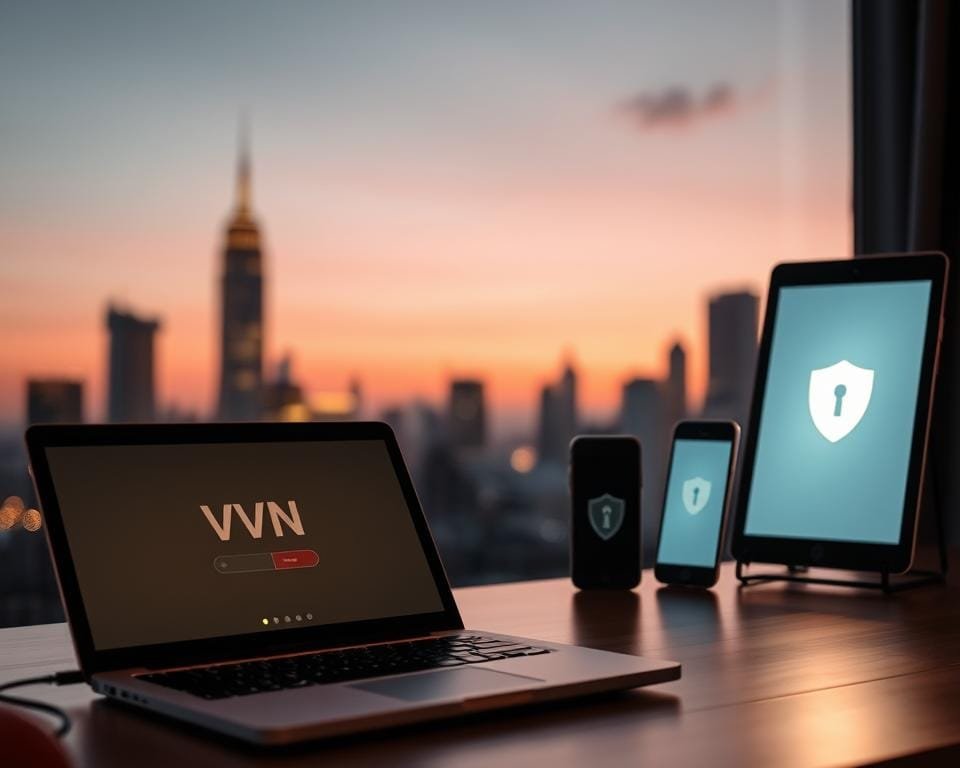
As cyber threats continue to evolve, the role of a VPN in protecting your online activities is vital. Using a VPN allows you to access the internet with confidence, knowing that your online activity is secure. Whether you’re logging into your bank account or shopping online, it’s much harder for cybercriminals to intercept your sensitive data if you’re using a VPN.
Privacy Concerns in the Modern Internet
The modern internet is fraught with privacy concerns, from data collection by advertisers to more malicious activities like identity theft. VPNs provide a layer of protection by encrypting your internet traffic, making it difficult for third parties to track your online activities.
Connecting to a remote server via a VPN not only secures your data but also enables smoother access to your social media, games, and legal streaming platforms.
Security Threats VPNs Can Protect Against
VPNs protect against several major security threats:
- Man-in-the-middle attacks: VPN encryption prevents attackers from intercepting your sensitive information.
- Packet sniffing: VPNs capture and encrypt data transmitted over networks, safeguarding against this technique.
- DNS hijacking: By encrypting your web traffic, VPNs prevent attackers from redirecting you to malicious sites.
By providing an additional layer of security and protection for your data and connection, VPNs ensure that your online transactions, such as banking or shopping, are secure.
How VPNs Work: The Technical Breakdown
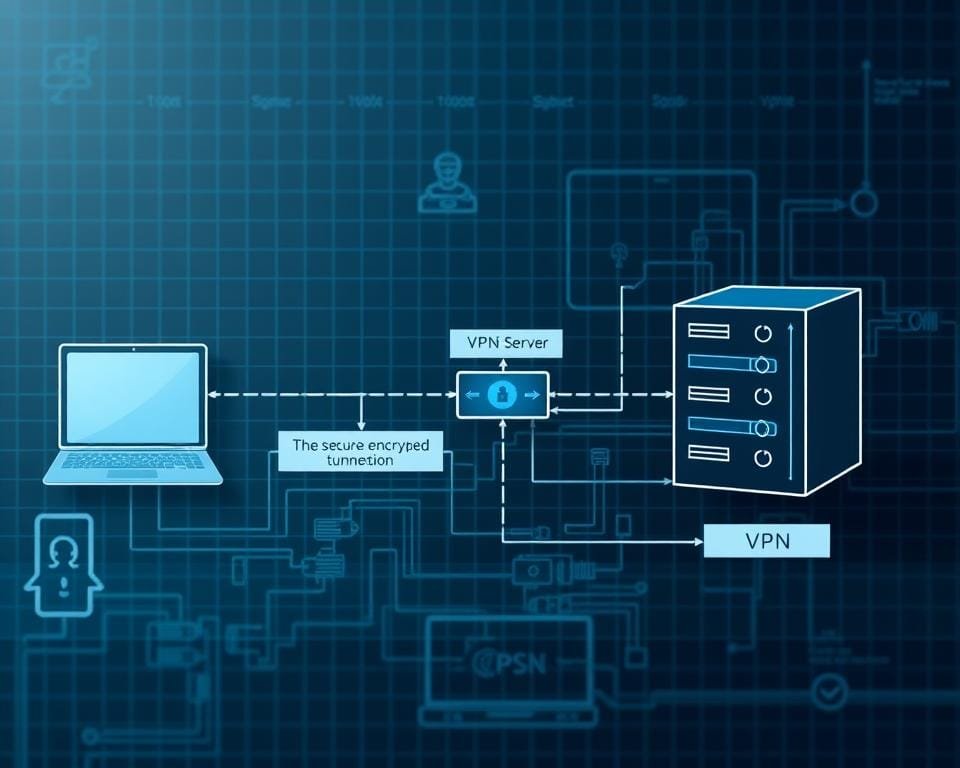
The mechanics behind VPNs reveal a sophisticated system designed to safeguard online communications. When you use a VPN (virtual private network), your traffic is routed through a secure server that hides your real IP address and encrypts the data your device sends and receives.
VPN Protocols Explained
VPN protocols are the set of instructions that dictate how data is transmitted between your device and the VPN server. Common protocols include OpenVPN, IKEv2, and WireGuard, each offering different balances of speed and security. Understanding these protocols is crucial for choosing a VPN that meets your needs.
- OpenVPN: Known for its strong security and versatility.
- IKEv2: Offers fast speeds and is ideal for mobile devices.
- WireGuard: A modern protocol with a focus on simplicity and efficiency.
The VPN Tunneling Process
The VPN tunneling process involves encrypting your data, encapsulating it in a secure packet, and transmitting it through a connection to the VPN server. This process ensures that your data remains private and secure as it travels across the network. The VPN server then decrypts the data and sends it to its final destination, masking your IP address and protecting your online activities.
By understanding how VPNs work, including the role of VPN protocols and the tunneling process, users can better appreciate the technology that protects their online data and maintains their privacy on the network.
Key Features to Look for in a VPN Service
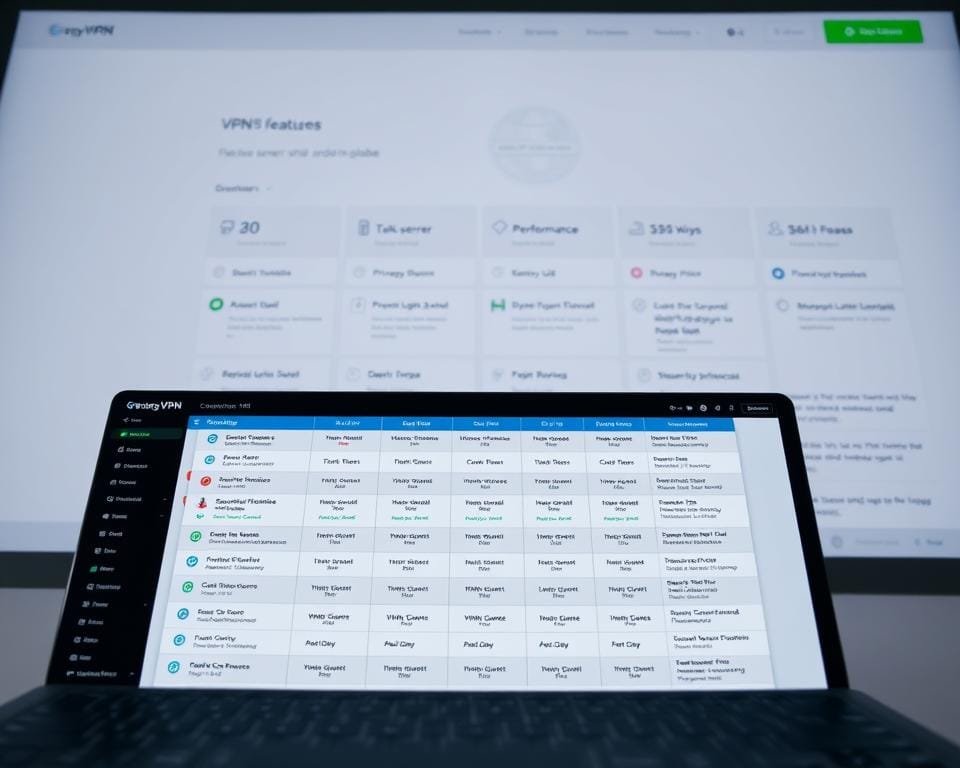
To ensure a secure and seamless browsing experience, it’s essential to consider several critical aspects of a VPN service. A VPN can significantly enhance your online security, but its effectiveness depends on various factors.
Server Network and Locations
A VPN with a vast server network across multiple locations can offer better performance and more options for bypassing geo-restrictions. ExpressVPN and NordVPN are examples of VPNs with extensive networks.
Speed and Performance
VPN speed is crucial for activities like streaming and online gaming. A good VPN should have minimal impact on your internet speed. Some VPNs, like TunnelBear, have optimized their services for better performance.
Privacy Policies and Logging Practices
Understanding a VPN’s privacy policy is vital. Look for VPNs with a strict no-logs policy, like NordVPN and ExpressVPN, which do not collect browsing history or traffic data. Be wary of red flags such as vague data collection practices.
- Check for third-party audits to verify a VPN’s privacy claims.
- Understand the jurisdiction under which the VPN service operates, as local laws can affect logging practices.
- Be aware of the difference between “no-logs” and “zero-knowledge” policy.
Common VPN Use Cases
The versatility of VPNs is evident in their multiple use cases, ranging from securing public Wi-Fi to bypassing censorship. VPNs are not just a tool for one specific task; they offer a wide range of benefits that cater to different needs of internet users.
Secure Public Wi-Fi Browsing
Using public Wi-Fi networks can expose your data to potential hackers. A VPN encrypts your internet connection, making it significantly harder for malicious actors to intercept your data. This is particularly important for individuals who frequently use public Wi-Fi for work or browsing.
Accessing Geo-Restricted Content
Many online services and content platforms are geo-restricted, meaning their availability is limited to specific geographic locations. VPNs allow users to bypass these restrictions by masking their IP address, making it appear as if they are accessing the content from an allowed region.
Bypassing Censorship
In some countries, governments impose strict censorship on the internet, blocking access to certain websites and social media platforms. VPNs, especially those with features like obfuscated servers and stealth protocols, can help users bypass these restrictions. For instance, with Stealth, a custom VPN protocol, users can access censored sites and social media while disguising their VPN connection.
Given the various use cases of VPNs, it’s clear that they are a powerful tool for enhancing online security, accessibility, and freedom. Whether you’re using public Wi-Fi, accessing geo-restricted content, or navigating through censored internet landscapes, a VPN can be a vital component of your online toolkit.
Proton VPN: Best Overall VPN Service
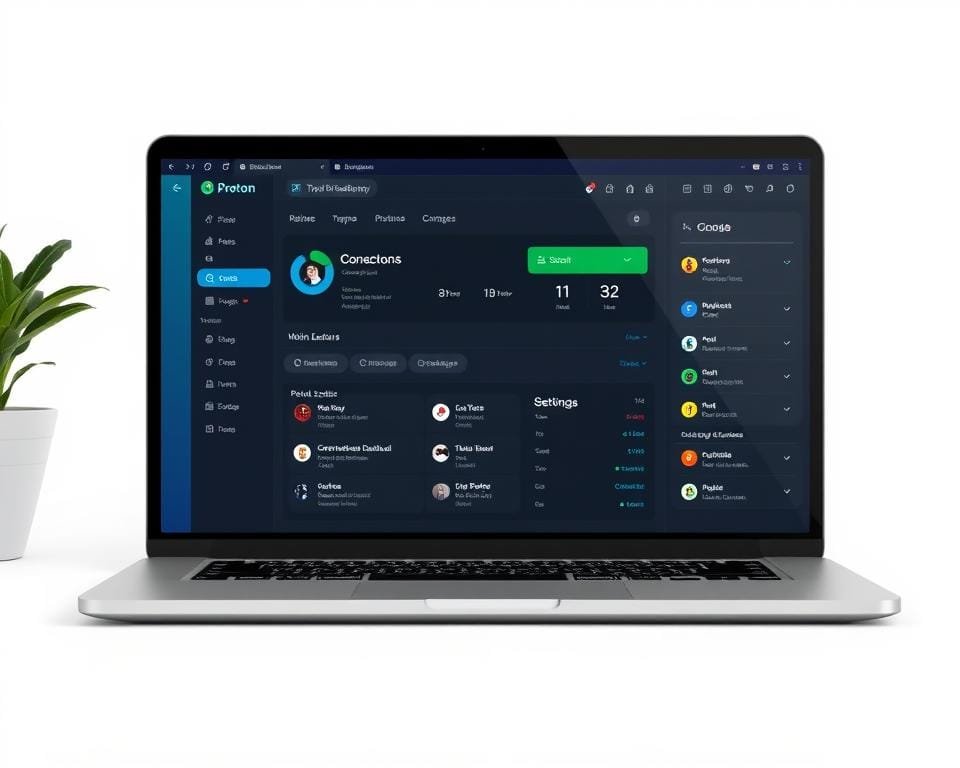
Proton VPN has garnered significant attention for its robust features and user-friendly interface. As a VPN service that prioritizes user privacy and security, Proton VPN offers a range of plans to suit different needs, including a free VPN version.
Key Features and Capabilities
Proton VPN’s key features include a strong encryption protocol, a no-logs policy, and a kill switch. The VPN also offers a user-friendly interface that makes it easy to connect to servers worldwide. With servers in multiple locations, users can access geo-restricted content and enjoy a secure browsing experience.
Pros and Cons
One of the significant advantages of Proton VPN is its free VPN plan, which is one of the best in the industry. However, some users may find that the paid plan is slightly more expensive than competitors. Overall, the pros outweigh the cons, making Proton VPN a top choice.
Pricing and Plans
Proton VPN offers various plan options, including a free version and several paid tiers. The paid plans are billed on a monthly or yearly basis, with discounts available for long-term commitments. For example, the Plus version costs around $10 per month when billed annually. Users can choose the plan that best fits their needs and budget.
NordVPN: Premium Features for Advanced Users
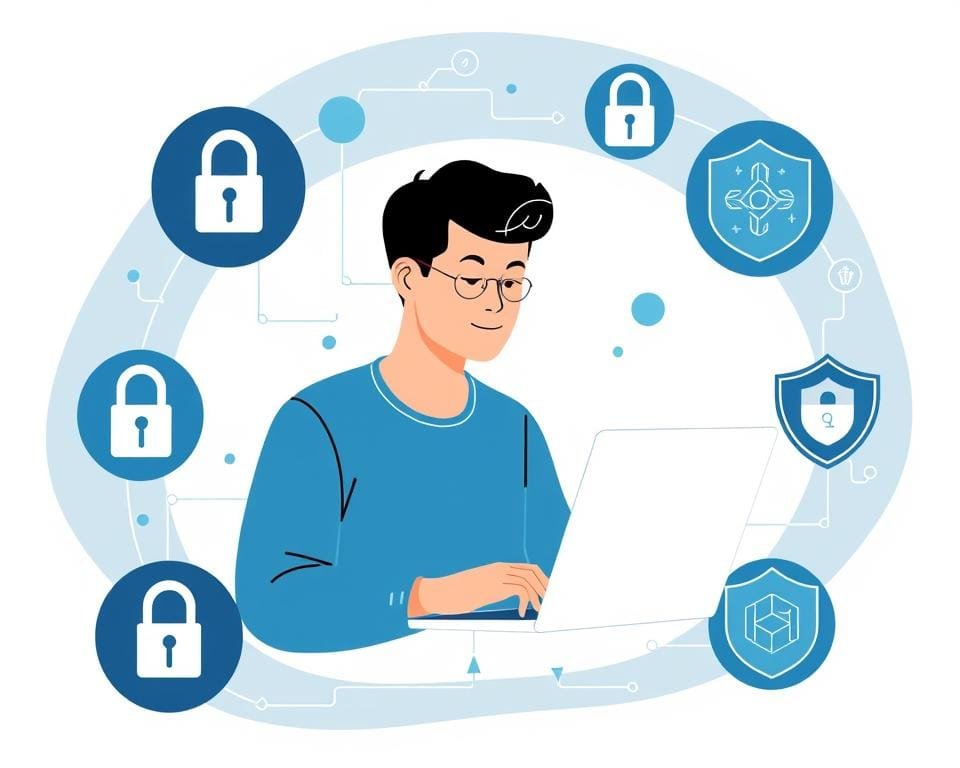
NordVPN is a notable provider in the VPN market, catering to advanced users with its premium offerings. For users seeking more than just basic VPN protection, NordVPN’s comprehensive suite of advanced features makes it a top choice.
Key Features and Capabilities
NordVPN’s premium features include a vast server network, advanced encryption protocols, and a strict no-logs policy. Its capabilities extend to features like NordPass password manager and NordLocker encrypted storage, providing users with a comprehensive digital security solution.
Key features include: Double VPN for enhanced security, CyberSec for blocking malware and ads, and a kill switch to protect data in case of a connection drop.
Pros and Cons
The pros of using NordVPN include its robust security features, user-friendly interface, and wide server coverage. However, some users may find the premium pricing to be a drawback, as it is more expensive than some other VPN services on the market.
NordVPN’s subscription costs more than the average monthly price seen across the industry, but the advanced features and comprehensive security it offers can justify the higher cost for many users.
Pricing and Plans
NordVPN offers various subscription plans, including monthly, yearly, and multi-year options. The service provides significant discounts for longer commitments, making it more affordable for users who plan to use the VPN long-term.
Pricing details: The monthly plan is priced at around $11.95, while the 1-year plan costs $6.99 per month, and the 2-year plan is $4.99 per month. NordVPN also offers a 30-day money-back guarantee, allowing users to try the service risk-free.
ExpressVPN: Best for Global Server Coverage

Global server coverage is where ExpressVPN truly excels, offering users a robust VPN service that spans numerous countries. This extensive network not only ensures that users can access geo-restricted content but also provides a reliable connection for secure browsing.
Pricing and Plans
ExpressVPN offers flexible subscription plans to cater to different user needs. The available options include a monthly, six-month, and annual plan. While the monthly subscription offers flexibility, significant savings are available with longer-term commitments.
The annual plan is particularly cost-effective, reducing the monthly cost. Additionally, ExpressVPN includes value-added services with its premium VPN subscriptions, such as a password manager and identity theft protection, enhancing the overall value of the service.
Key Features and Capabilities
ExpressVPN’s global server network is complemented by its robust feature set, including high-speed connections and advanced security protocols. This makes it an ideal choice for users requiring both security and performance.
One of the standout features is its 30-day money-back guarantee, effectively serving as a risk-free trial period. This allows potential subscribers to test the service before committing to a long-term plan.
Pros and Cons
While ExpressVPN offers extensive global coverage and robust features, the downsides include the lack of a free version and a slightly higher cost compared to some competitors. However, for many users, the premium features and global server access justify the higher cost.
For Webnetmag.com readers, ExpressVPN represents a top-tier VPN service that is particularly suited for those requiring global server coverage. By understanding the different subscription options and their benefits, users can make an informed decision about whether ExpressVPN is the right choice for their needs.
TunnelBear VPN: User-Friendly Option for Beginners
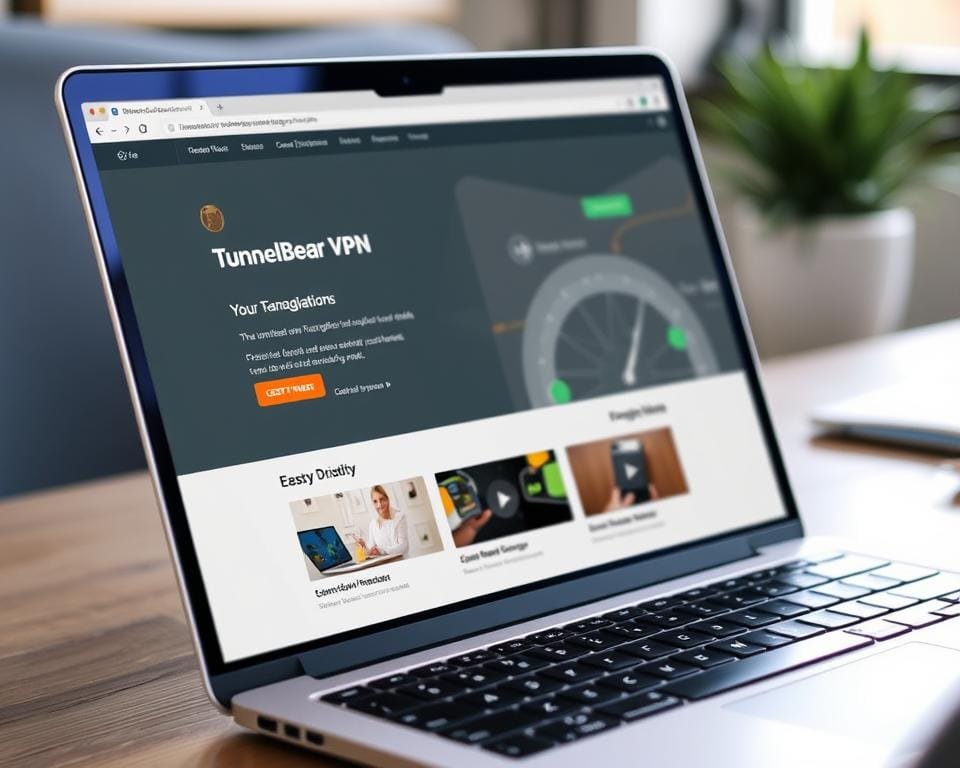
With its user-centric design, TunnelBear VPN is an attractive option for individuals who are new to the concept of VPNs. It offers a straightforward and intuitive service that makes securing your internet connection easy.
TunnelBear’s appeal lies in its simplicity and the robust security features it offers. The VPN service is designed to be accessible to everyone, regardless of their technical expertise. It provides a free vpn option, allowing users to test its capabilities before committing to a paid plan.
Key Features and Capabilities
TunnelBear VPN boasts several key features that make it an excellent choice for beginners. These include its user-friendly interface, robust encryption protocols, and a unique “Vigilant Mode” that blocks suspicious traffic. The service also offers a “GhostBear” feature, designed to help users bypass censorship in highly restrictive regions.
Pros and Cons
One of the main advantages of TunnelBear is its ease of use. The application’s design is intuitive, making it simple for new users to get started. However, the free vpn version has a data limit of 2GB per month, which may not be sufficient for heavy users. Upgrading to a paid plan removes this limitation.
Pricing and Plans
TunnelBear offers a variety of plan options to suit different needs. The free vpn version is a great starting point, with 2GB of data per month. For those requiring more, the premium plans are priced at $9.99 per month, $4.99 per month for an annual subscription, and $3.33 per month for a three-year commitment. Additionally, TunnelBear offers team plans for small businesses and a RememBear password manager that can be bundled with VPN subscriptions.










